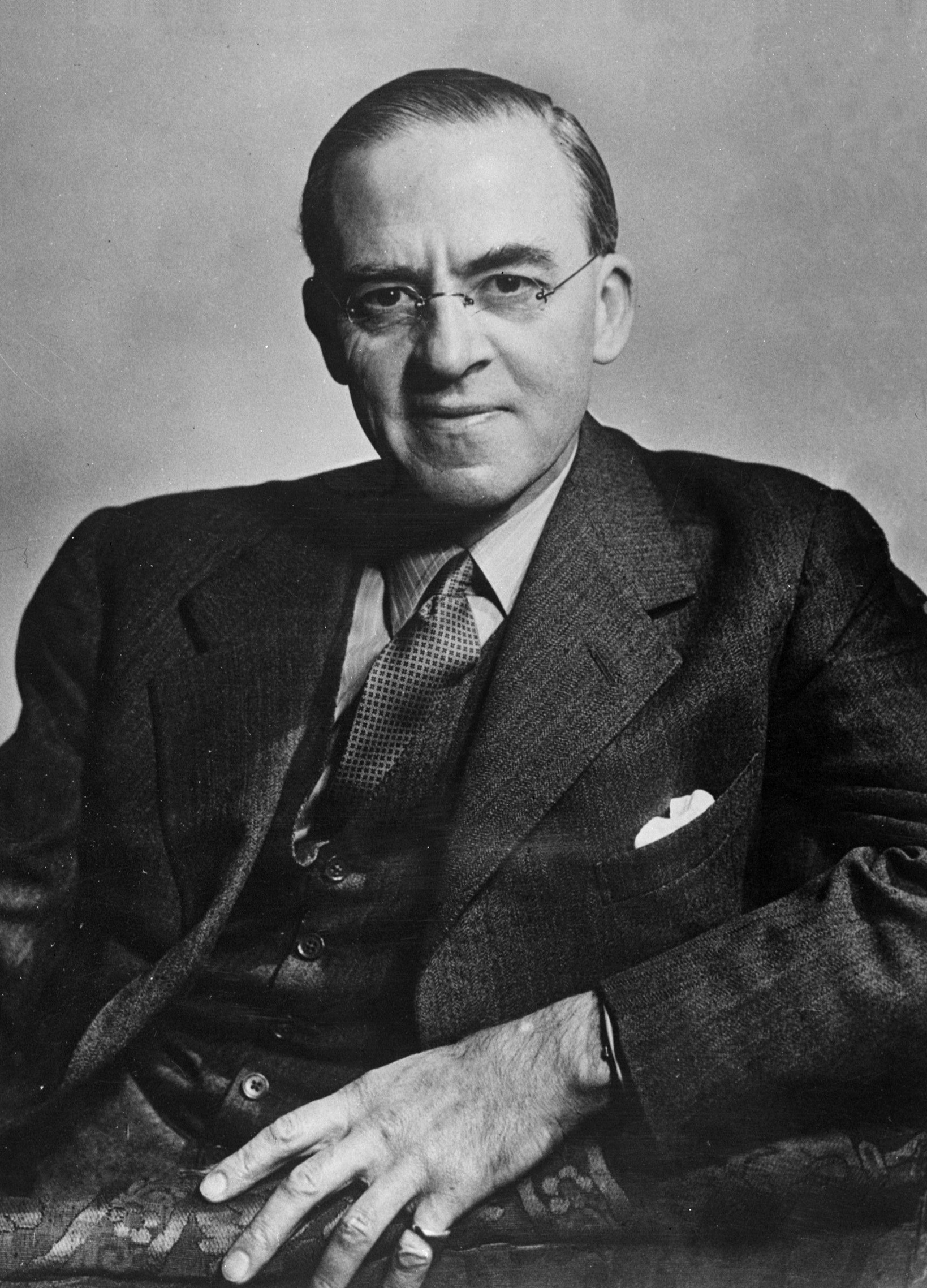“It is fundamental to Socialism that we should liquidate the British Empire as soon as we can.”
Hull Daily Mail, 2 March, 1936.
Sir Richard Stafford Cripps, was a British Labour politician of the twentieth century.
A wealthy barrister by background, he first entered Parliament at a by-election in 1931, and was one of a handful of Labour frontbenchers to retain his seat at the general election that autumn. He became a leading spokesman for the left-wing and co-operation in a Popular Front with Communists before 1939, in which year he was expelled from the Labour Party. During World War II, he served as Ambassador to the USSR , during which time he grew wary of the Soviet Union, but achieved great public popularity because on being invaded by Nazi Germany the USSR stated its co-operation with the Allies and restoring peace, causing him to be seen in 1942 as a potential rival to Winston Churchill for the premiership. He became a member of the War Cabinet of the wartime coalition, but failed in his efforts to resolve the wartime crisis in India, where his proposals were too radical for Churchill and the Cabinet, and too conservative for Mohandas Karamchand Gandhi and other Indian leaders. He later served as Minister of Aircraft Production, an important post but outside the inner War Cabinet.Cripps rejoined the Labour Party in 1945, and after the war; served in the Attlee Ministry, first as President of the Board of Trade and between 1947 and 1950 as Chancellor of the Exchequer. In the latter position, Cripps was responsible for laying the foundations of British post-war economic prosperity, and was, according to historian Kenneth O. Morgan, "the real architect of the rapidly improving economic picture and growing affluence from 1952 onwards". The economy improved after 1947, benefiting from American money given through grants from the Marshall Plan as well as loans. However, the pound had to be devalued in 1949. He kept the wartime rationing system in place to hold down consumption during an "age of austerity", promoted exports and maintained full employment with static wages. The public especially respected "his integrity, competence, and Christian principles".
Wikipedia

“It is fundamental to Socialism that we should liquidate the British Empire as soon as we can.”
Hull Daily Mail, 2 March, 1936.
Memorandum, 'The Dollar Situation: Forthcoming Discussions with U.S.A. and Canada' (4 July 1949), quoted in Correlli Barnett, The Lost Victory: British Dreams, British Realities: 1945–1950 (London: Pan, 1996), p. 353
Chancellor of the Exchequer
The Manchester Guardian (15 February 1937), quoted in Hugh Dalton, The Fateful Years. Memoirs 1931-1945 (London: Frederick Muller Ltd, 1957), p. 151
Speech on 23 May, 1938, quoted in Talus, Your Alternative Government (London: Eyre & Spottiswoode, 1945), p. 45.
Speech at Stockport (14 November 1936), The Manchester Guardian (15 November 1936), quoted in Hugh Dalton, The Fateful Years. Memoirs 1931-1945 (London: Frederick Muller Ltd, 1957), p. 151.
Speech in Bristol (28 October 1933), quoted in The Times (30 October 1933), p. 14.
The Manchester Guardian (28 May 1934), quoted in Hugh Dalton, The Fateful Years. Memoirs 1931-1945 (London: Frederick Muller Ltd, 1957), p. 150.
Forward, 3 October, 1936, quoted in Talus, Your Alternative Government (London: Eyre & Spottiswoode, 1945), p. 36.
Can Socialism come by Constitutional Methods? (1933), p. 2, quoted in Hugh Dalton, The Fateful Years. Memoirs 1931-1945 (London: Frederick Muller Ltd, 1957), p. 151.
Speech to the Socialist League in Nottingham (6 July 1935), quoted in The Times (8 July 1935), p. 21.
Hansard, House of Commons, 5th Series, vol. 292, col. 2425.
Speech in the House of Commons opposing the National Government's decision to expand the Royal Air Force, 30 July, 1934.
Can Socialism come by Constitutional Methods? (1933), p. 4, quoted in Hugh Dalton, The Fateful Years. Memoirs 1931-1945 (London: Frederick Muller Ltd, 1957), p. 151.
Speech in Canning Town (26 June 1935), quoted in The Times (28 June 1935), p. 13.
Speech at Eastleigh, Hampshire (14 March 1937), quoted in The Times (15 March 1937), p. 21.
Speech to the annual conference of the University Labour Federation in Nottingham (6 January 1934), quoted in The Times (8 January 1934), p. 14.
“Emphatically no, and I never have been.”
Peter Howard, "Men on Trial" (Blandford Press, 1945), p. 69
Asked by Peter Howard whether he favoured the use of any measure of force to establish Socialism.
The Manchester Guardian (5 November 1934), quoted in Hugh Dalton, The Fateful Years. Memoirs 1931-1945 (London: Frederick Muller Ltd, 1957), p. 150.
Speech https://api.parliament.uk/historic-hansard/commons/1947/aug/07/state-of-the-nation#column_1766 in the House of Commons (7 August 1947)
President of the Board of Trade
“[In the case of sterling devaluation was] neither necessary nor will it take place.”
Press conference in Rome (1 May 1949), quoted in The Times (2 May 1949), p. 3
Chancellor of the Exchequer
Speech https://api.parliament.uk/historic-hansard/commons/1948/jan/26/french-franc-devaluation#column_672 in the House of Commons (26 January 1948)
Chancellor of the Exchequer